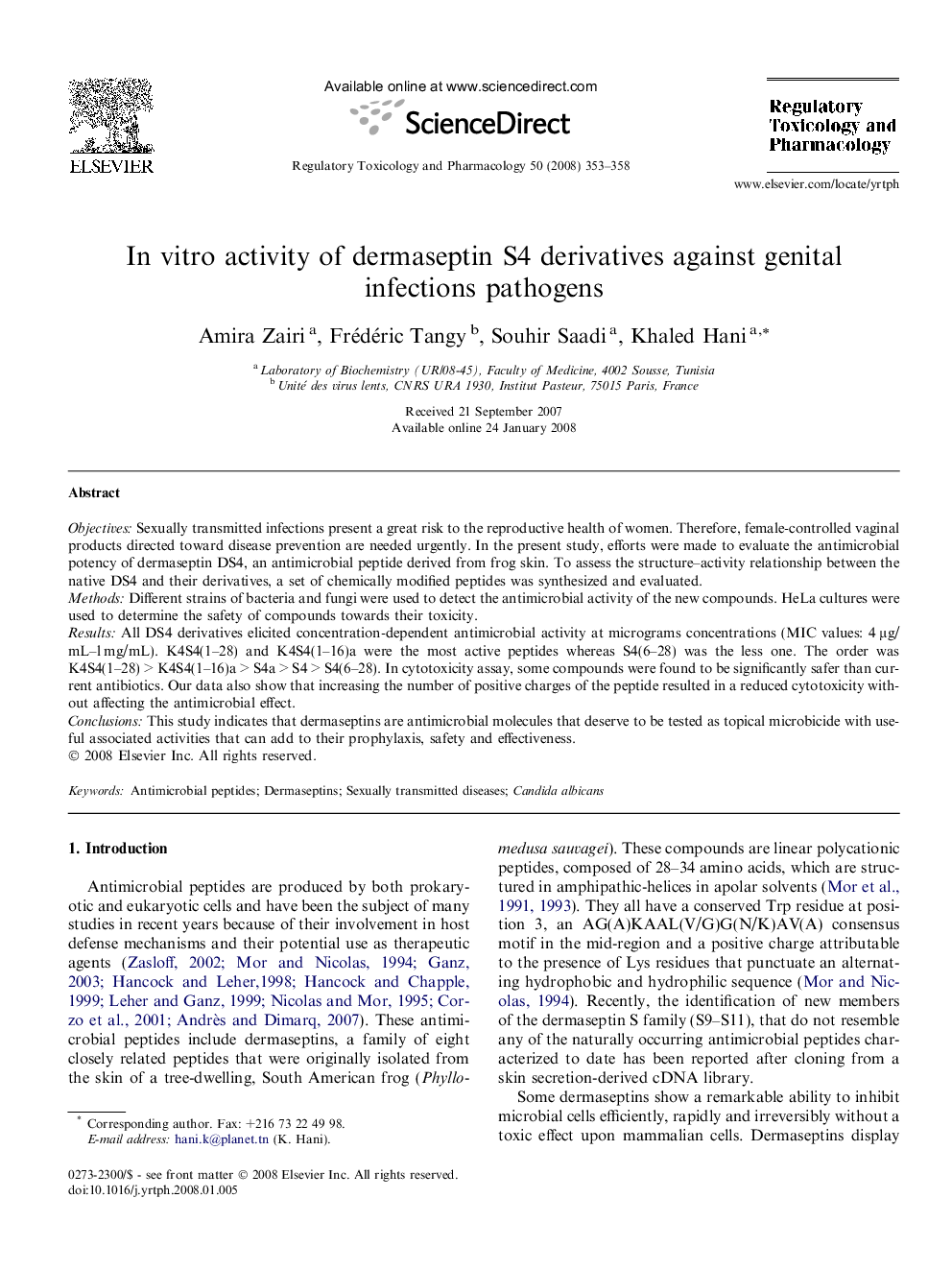| Article ID | Journal | Published Year | Pages | File Type |
|---|---|---|---|---|
| 2592914 | Regulatory Toxicology and Pharmacology | 2008 | 6 Pages |
Objectives: Sexually transmitted infections present a great risk to the reproductive health of women. Therefore, female-controlled vaginal products directed toward disease prevention are needed urgently. In the present study, efforts were made to evaluate the antimicrobial potency of dermaseptin DS4, an antimicrobial peptide derived from frog skin. To assess the structure–activity relationship between the native DS4 and their derivatives, a set of chemically modified peptides was synthesized and evaluated.Methods: Different strains of bacteria and fungi were used to detect the antimicrobial activity of the new compounds. HeLa cultures were used to determine the safety of compounds towards their toxicity.Results: All DS4 derivatives elicited concentration-dependent antimicrobial activity at micrograms concentrations (MIC values: 4 μg/mL–l mg/mL). K4S4(1–28) and K4S4(1–16)a were the most active peptides whereas S4(6–28) was the less one. The order was K4S4(1–28) > K4S4(1–16)a > S4a > S4 > S4(6–28). In cytotoxicity assay, some compounds were found to be significantly safer than current antibiotics. Our data also show that increasing the number of positive charges of the peptide resulted in a reduced cytotoxicity without affecting the antimicrobial effect.Conclusions: This study indicates that dermaseptins are antimicrobial molecules that deserve to be tested as topical microbicide with useful associated activities that can add to their prophylaxis, safety and effectiveness.
